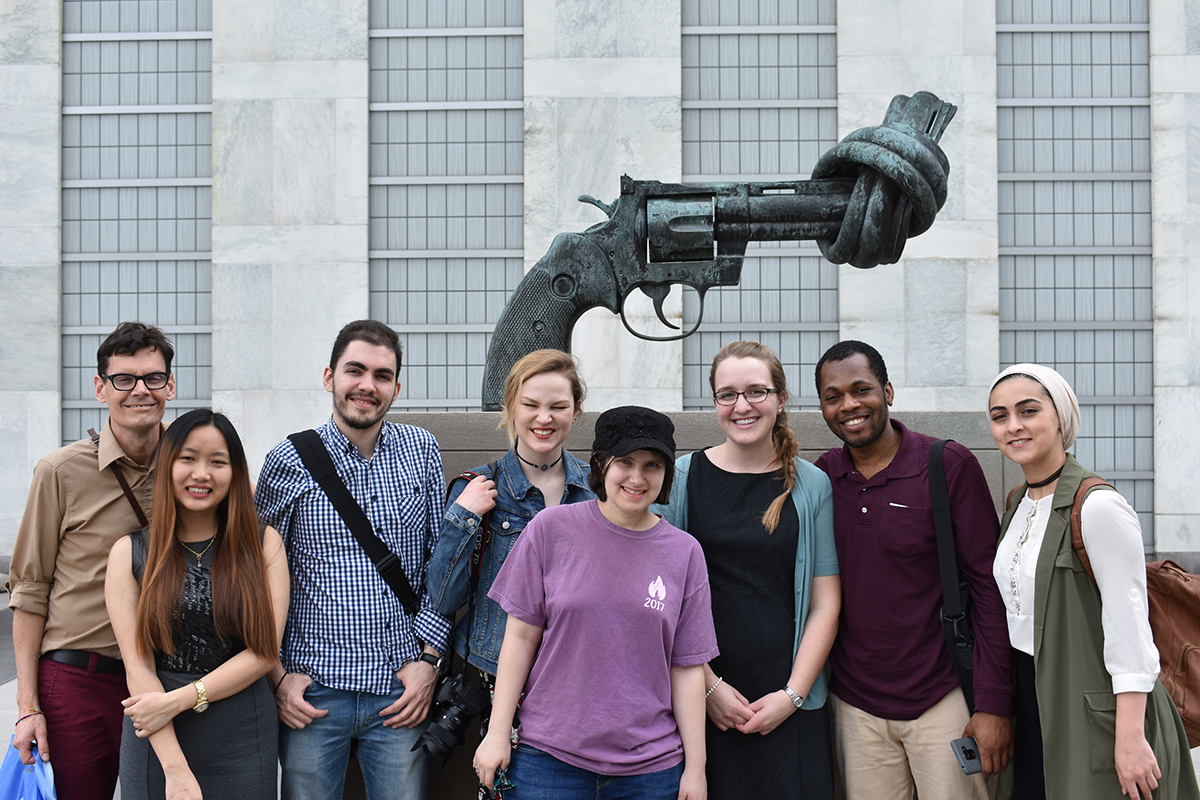Widening My Circle Remapped the World

Realizing the true importance of international, intercultural, and interreligious dialogue
You know those digests that summarize in a few paragraphs what’s happening in far-flung parts of the world? Most news organizations in the U.S. have some version in print or online.
In years past, I might have scanned these, offering a passing thought for victims of a bombing in Iraq or a mass kidnapping in Africa. They might have disturbed me for a minute or two, but if I’m being painfully honest, they often didn’t pierce my inner well-being.
That’s understandable in some ways. What happens thousands of miles away to people of different cultures can seem unreal from the worldview of people who don’t share that culture. What could I do about it anyway? I had an intellectual understanding of these places and the troubles there, but no emotional connection to them.
Personal Connections Change Perspectives
That changed completely after I started working at Hartford Seminary, a graduate school that focuses on interfaith dialogue and has an international, interreligious, and intercultural faculty and student body. Suddenly, I had a colleague whose family couldn’t leave war-torn Syria. When this colleague spoke about his brothers having to flee the country, the news was not just news anymore. It was the tragic story of a friend’s family crisis.
When one of our peacemaking scholarship students told us that he and his wife were caring for more than a dozen orphans left for dead after sectarian violence in Nigeria, the news from that country took on a new urgency. When the military coup happened recently in Myanmar, my first thought was to reach out to a student and co-worker who had been forced to send her daughter home because of visa issues.
It’s human nature, of course. I care about these people, therefore I care about their lives and their relatives in places I’ve never visited. I read the news now with an eye toward how this affects people I know.
Good for you, some might say. Why should that matter to anyone else?
Globalization Creates a More Intertwined World
My answer is this: Commerce, politics, technology – they’re all global now. Lives around the world are inextricably intertwined on matters of climate, food supply, accessibility to clean water, manufacturing, and as we’ve most recently seen, public health. No one can afford to read the news at a remove anymore. What happened in Wuhan in December soon altered reality for everyone on the planet within a few months.
What might have been different if we had read that news not as a strange phenomenon happening halfway across the world but as a crisis affecting people we regard as family?
So how do we get there? My advice is to look for institutions and opportunities that bring you into proximity with people of other faiths and cultures. If you’re shy or worried about saying the wrong thing, imagine being the person who doesn’t speak the language perfectly or hasn’t absorbed the mainstream culture. Yes, it’s an act of kindness to reach out and welcome that person into your circle, but the reward is much greater. It happens when your view of the world suddenly becomes more inclusive and more fair. It’s like looking through the wrong end of the telescope and then turning it around. You’ll see much farther and with more clarity than you could have imagined.
I’ve seen this happen up close with Hartford students enrolled in our MA in Peacebuilding program which builds knowledge in interreligious peace studies and uses experiential learning to examine conflict and build relationship-based resolutions. Through case studies and role-play of real-world international trauma situations, our students step right into another’s shoes — becoming more empathetic, global citizens with a heart for all.
